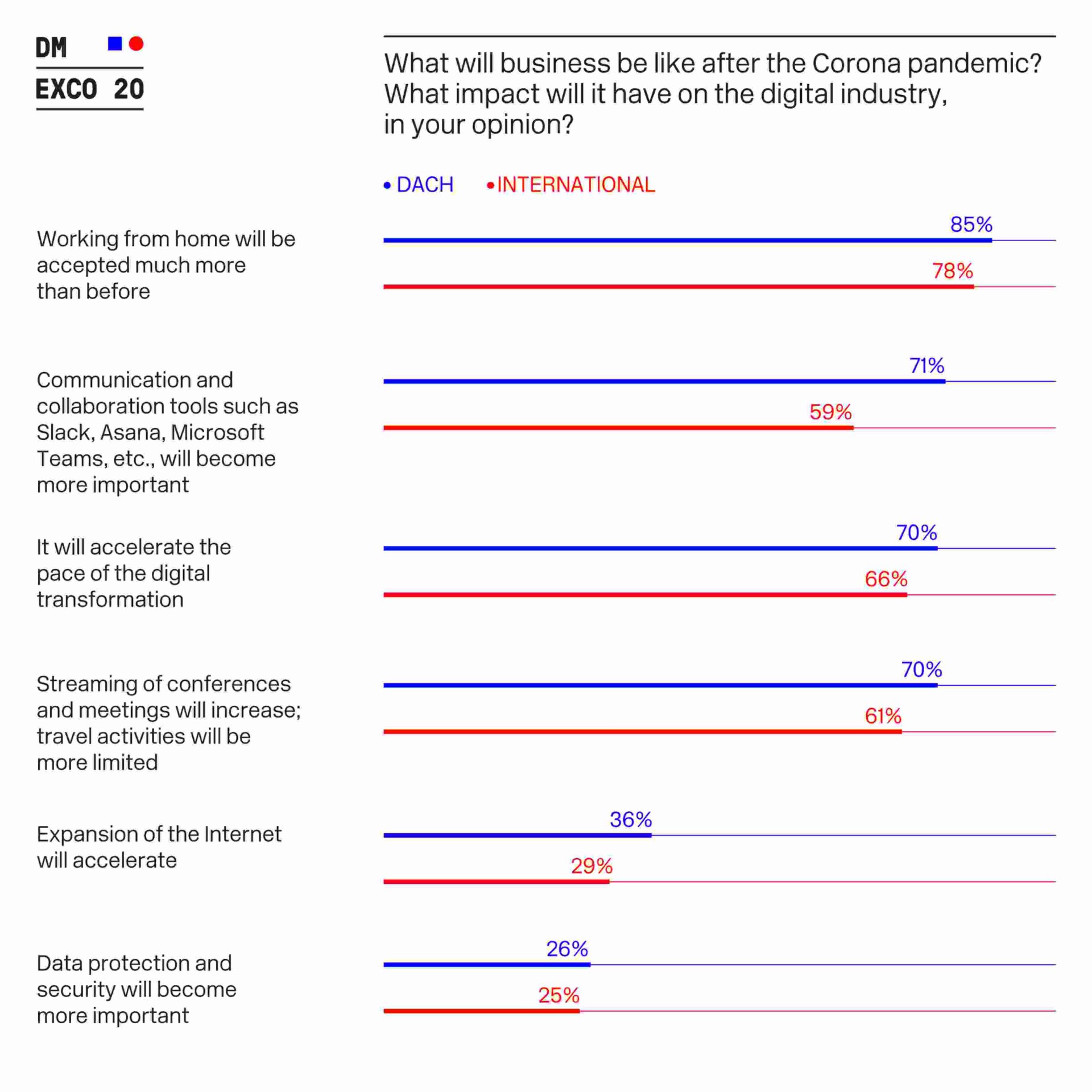Few of us need reminding of the far-reaching effects of the Covid-19 pandemic, which has touched almost all areas of life. Different industries, including hospitality, manufacturing and airlines, continue to grapple with its implications.
For the digital sector, the pandemic has also been a transformative experience, driving a number of trends that will define the relationship between tech companies, policymakers and society in the years to come. Three notable trends in 2021 and beyond will be: tech companies and policymakers working more closely together on recovery and resilience efforts, the acceleration of digital transformation and sharpening tech legislation to incorporate lessons learned from the crisis.
Tech Companies and Policymakers Will Work More Closely Together
When the pandemic first hit large parts of the world in early 2020, we saw an unprecedented level of mobilisation among both policymakers and industry actors to counter some of the most immediate challenges, such as ensuring access to connectivity as work and entertainment moved online and diverting production lines to focus on manufacturing protective equipment.
Satellite communication companies diverted resources to address higher demand in rural areas as people increasingly drifted from major urban centres to the countryside for lockdowns. Video streaming companies such as Netflix quickly reached agreements with policymakers in Europe to reduce the quality of their entertainment services to free up sufficient resources for working from home. Large digital corporations assisted public services with obtaining personal protective equipment (PPE) – all in the space of a few weeks.
While this is not a revolution in the relationship between policymakers and tech companies, it will leave a mark on the way the two sides work together in the future. 2021 will see intensified cooperation between tech companies, whose products and services are key to driving connectivity, digital transformation, infrastructure resilience, safe hospitals and schools, and governments tasked with finding a way towards recovery and resilience.
Many companies have shifted their focus to accessing various post-Covid-19 recovery funds available around the world. While they have already begun to design projects alongside ministries and to prepare funding applications, 2021 will be the crunch year when much of this work is agreed upon and kicked off.
Digital Transformation: “Future of Work” Will Become the Present
What was widely perceived as the “future of work” will rapidly become the present way of working in 2021.
Where policymakers had taken proactive steps in planning to boost digital transformation before 2020, the pandemic has rapidly accelerated this process, especially in the public sector. Digital transformation and the shift to the future of work model will be urgent in 2021, moving from an aspirational plan to an immediate priority for many regions.
For example, in its EUR 750 billion Recovery Plan, the EU has asked Member States to dedicate at least 20% of national funds to digital. A key focus of these funds will be the digital transformation of public sector processes and ICT. Companies aspiring to become thought leaders and fill a niche in the future of work will need to stand out from a much larger crowd as different parts of the industry rush to fill this space in 2021.
The next couple of years may very well be remembered as the time that brought the future of work to regions like Europe and North America through practices and policies such as remote working for public sector employees and a much more urgent focus on digital literacy and skills.
Covid-19 Will Impact Future Digital Legislation
At the same time, administrations around the world will move forward with regulation they had planned before the pandemic hit and, in some cases, with more gusto. For example, the European Commission had envisaged a revamp of cybersecurity legislation and rules on disinformation in its 2019-2024 working programme. With an increase this year in cyberattacks, including targeting hospitals and vaccine developers, and a wave of disinformation around Covid-19, these rules will likely be much tighter than anticipated and will take into account specific use cases in health and other sectors.
Similarly, in APAC, a number of governments are tightening regulation to boost funding for recovery efforts, including policies focusing on big tech. A number of Asian countries, such as Indonesia and the Philippines, have introduced digital taxes in 2020 or are in the process of deliberation. While these plans have been a long time in the making, these countries have been newly motivated to reap the benefits of the rapid boost in digitisation and thousands of businesses moving online.
2021 will be a year defined by the 2020 Covid-19 pandemic as governments, citizens and tech companies rally from the initial crisis to pave the way for a new way of working and accordingly evolving legislation.
Recommendations
- Tech companies must make resources available to support the Covid-19 recovery, which will in turn strengthen the relationship between these entities and policymakers.
- As future working models begin to take shape, companies should prepare for increased levels of digitisation and facilitate remote working options for their employees.
- To support the move towards the future of work, companies should also ensure that staff are trained in the digital skills needed to thrive in this new professional environment.
- The development and implementation of cybersecurity legislation should be prioritised, with the protection of the vaccine rollout and Covid-19 response being especially important.
The post Covid-19 and Tech Policy: Driving Digital Transformation appeared first on .


